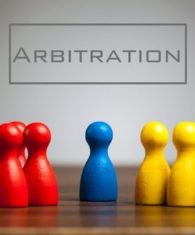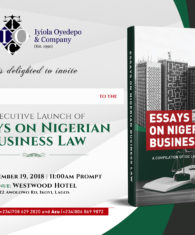PROTECTING YOUR ASSETS (PART 1)
Dear Subscriber,
Bob Marley died of cancer, at the age of 36, on May 11, 1981 and in the past 36 years his family and business acquaintances have constantly battled over control his estate which is currently valued at $130m and that legacy is not likely to end any time soon.
Examples like this abound especially in Nigeria where there are cultural and religious inhibitions to estate planning. It is definitely not the intention of anybody to allow his/her assets become a subject of wrangling after passing on and one of the most effective ways for ensuring a seamless transition of assets is by establishing a Trust. This week we consider the meaning and benefits of a Trust as an asset protection plan.
What is a trust?
A trust conventionally arises when property is transferred by one party to be held by another party for the benefit of a third party. The person who creates a trust is called the ‘settlor‘. The settlor gives property to someone that he or she completely trusts. That property becomes the ‘trust fund‘ or the ‘trust assets‘. Examples of property that can form part of trust assets include houses, land, shares and cash. The trusted person receiving and controlling the trust assets is called a ‘trustee‘. Any person who the settlor decides can benefit from the trust assets is called a ‘beneficiary‘. Beneficiaries can include individuals of any age and organisations such as charities.
Normally, the terms of the trust are written in a document commonly referred to as a trust deed and this document names the trust and the date it was made, the settlor, the trustees, the beneficiaries, and the terms on which the trustees will hold the trust assets for the benefit of the beneficiaries. The most widely used type of trust is known as a living trust which is essentially made whilst the person establishing the trust is still alive.
Role of a Trustee
A person who is a trustee is automatically obliged to observe serious legal duties. These include a duty to comply with the terms of the trust, to act in good faith and in the best interests of the beneficiaries, to take and retain control of trust assets, keep accounts, take advice in connection with the investment of trust assets and to act unanimously and impartially.
Trustees can ‘retire’ and new trustees can be appointed, to ensure that the trust can continue. Above all, a trustee is personally liable for his or her actions in that role. Any failure to carry out the duties spelled out in the Trust deed is a ‘breach of trust’ for which there can be personal liability.
Advantages of a Trust.
There are several reasons trust funds are so popular and some of the advantages include:
- Trust funds are useful for situations where you don’t trust your family members to follow the letter of your intentions following your passing, a trust fund with an independent third-party trustee can often alleviate your fears.
- Trust Funds help you avoid Probate and Inheritance taxes which can sometimes be an excessive burden on your beneficiaries
- Trust funds can protect assets that you cherish, such as a family business, from your beneficiaries. For instance a Trustee can be appointed to continue running your business with the profits going to your intended beneficiaries. The beneficiaries would still get the financial benefits of the business but would have no say in running it.
- Protects your assets from creditors, or any potential loss of those assets to creditors.
- Trusts offer greater privacy than wills because trusts don’t go through probate, so there usually aren’t any public records of them. This means your assets and whom you leave them to are kept private
Conclusion
Having worked hard for your assets, it is only proper that you have a say on how the assets are handled when you are no longer around. Please note however that trusts are not for everyone and it is essential that you consult your professional advisers before embarking on this course.
The content of this document is solely for information purposes only and should not in any way be construed as a legal opinion. If you require specific legal advice on any of the matters covered in this article please contact a professional.
MOTIVATIONAL VIDEO
We understand how tough it is being in business, so the “IOC Weekly” Editorial Team has decided to add inspiring videos to our weekly articles to juice up your week. We hope it serves the purpose.
Cheers,to a fruitful week.



